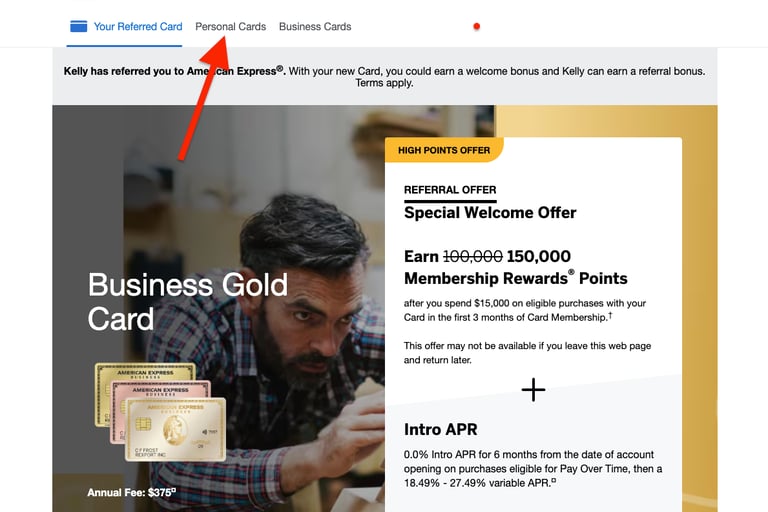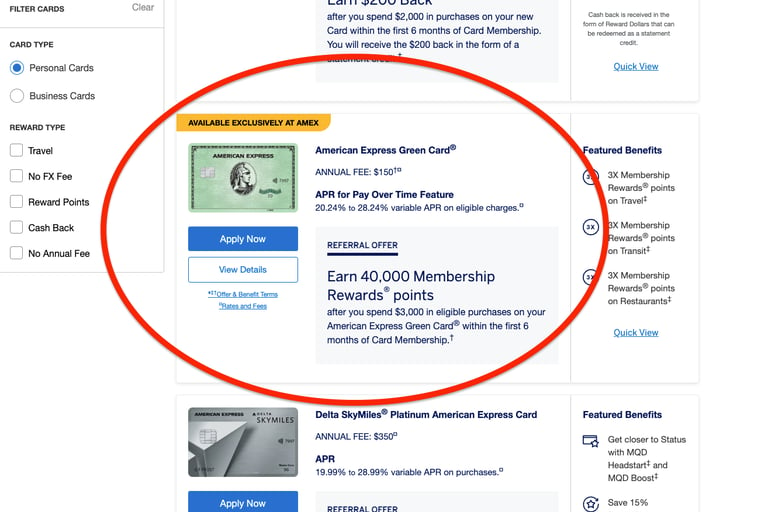3 Best Travel Credit Cards for Small Budgets: Start Travel Hacking on Less Than $1100/Month
Think travel hacking is only for big spenders? Think again! Discover the top travel credit cards perfect for a monthly budget under $1100. Learn how to earn points and miles without increasing your expenses or taking on debt. A must-read for budget-conscious travelers ready to unlock free travel.
GETTING STARTEDPOINTS AND MILES GUIDESFAVORITE CARDSCREDIT CARDS
12/31/20246 min read


Why Budget-Friendly Travel Hacking Matters
Travel hacking—or the art of earning and redeeming points and miles for travel—is often portrayed as a game for high spenders. Flashy welcome bonuses that require thousands of dollars in spend within a few months can feel out of reach for anyone on a modest budget. However, this doesn't mean travel hacking is off-limits for you. With the right strategies and card choices, even those with a monthly budget under $1110 can start building points and miles toward free or discounted travel.
The Challenge of High Spend Requirements
Many of the most popular travel credit cards require you to spend $4,000 or more in the first three months to earn their lucrative welcome bonuses. For someone with a modest budget focused on everyday essentials like groceries, rent, and utilities, meeting that spend without overextending financially can be nearly impossible. Overspending just to earn rewards can quickly lead to debt, defeating the purpose of travel hacking altogether.
Why Responsible Travel Hacking Is Key
The essence of travel hacking is to save money, not to overspend or incur debt. That's why finding budget-friendly credit cards is so important. By choosing cards with low minimum spend requirements and no or low annual fees, you can start earning rewards without changing your financial habits or jeopardizing your financial health.
The Benefits of Travel Hacking on a Budget
For budget-conscious individuals, travel hacking offers the opportunity to:
Take advantage of rewards programs to make travel more affordable.
Maximize value from everyday spending categories like groceries, gas, and utilities.
Travel for less while staying within your financial means.
With the right approach, you can still enjoy the perks of free flights, hotel stays, and other travel rewards without spending more than you already do. The key is to focus on credit cards and strategies tailored to your spending habits, allowing you to unlock the benefits of travel hacking—on your terms.
Key Features to Look for in Travel Cards for Low Budgets
Low or No Annual Fees
Cards with no or minimal annual fees reduce upfront costs, making them more budget-friendly.
Manageable Minimum Spend Requirements
Look for cards with minimum spend thresholds you can meet without altering your usual spending patterns (e.g., $500–$3000 in three months).
Bonus Categories That Match Your Spending
Choose cards that reward everyday spending categories like groceries, dining, or gas to maximize your points-earning potential.
Flexible Redemption Options
Cards offering transferable points, statement credits, or a variety of travel partner options give you the most value for your rewards.
Top 3 Travel Cards for Low Monthly Budgets
1. American Express Green Credit Card (If you decide to sign up for this card, please consider supporting our travel blog by using our referral link. The card will show up as the Business Gold, but you just need to filter to personal cards and select the Amex Green Card. You can simply click here to use the referral link. Thank you!)
Minimum Spend Requirement: $3000 in 6 months for a bonus of 40K Membership Reward (MR) points (at time of publishing)
Annual Fee: $150
Why It’s Great for Small Budgets:
Earn 3x Points on Dining and Travel
$199 Clear Plus credit (more than covers the annual fee and is super helpful when flying!)
Great entry card into the Amex Membership Rewards (MR) family which gives you access to transfer points to their 20+ transfer partners
You can pair this card with your Rakuten account to earn even more MR points


2. Capital One VentureOne Rewards Credit Card
Minimum Spend Requirement: $500 in 3 months for the welcome bonus of 20K Capital One Miles at time of publishing.
Annual Fee: $0.
Why It’s Great for Small Budgets:
Earn 1.25x miles on every purchase with no cap.
Simple rewards structure with no foreign transaction fees for international travel.
Access to transfer your Capital One Miles to their 15+ travel partners
3. Chase IHG One Rewards Premier Credit Card (Please consider using our referral link here to apply! Thanks!)
Minimum Spend Requirement: $3000 in 3 months for the welcome bonus of 4 free night certificates (up to 40K each) at the time of publishing.
Annual Fee: $99
Why It’s Great for Small Budgets:
Automatic Platinum Elite Status
Annual free night certificate on your cardmember anniversary
TSA Precheck or Global Entry credit
Great entry card with a low spend requirement to get 4 nights free. Check out this blog post where I give an example of using these 4 free night certificates to take your family to Hawaii!


Additional Possibilities
There are 2 additional cards worth sharing when it comes to travel hacking on a smaller budget. The reason they are not my top 3 recommendations is because by themselves, they do not earn transferrable points but instead earn cash back. However, if you have a large expense coming up that you have budgeted for (for example a new appliance, new furniture, a trip you are paying cash for, etc.) then you could open a card with a higher spending threshold with the intent to buy the item you already budgeted for and your normal expenses.
Here's an Example:
Let's say your normal monthly spend that you can put on a credit card and pay off monthly is $1000, for a total of $3000 in 3 months
Now let's say you have been saving for a new refrigerator which costs $1000.
If you were to buy the refrigerator and then put your normal monthly spend on the same card, you could complete a $4000 sign up bonus without incurring any extra debt.
At the $4000 spend in a 3-month time frame, you open up the ability to open some of my favorite travel reward cards, like the Chase Sapphire Preferred or the Capital One Venture X.
In this example, you already saved the money for the big expense, so you didn't incur any extra debt, but were able to meet a higher spend requirement and earn a larger sign-up bonus.
If you can plan ahead for a larger purchase that is within your budget, then I recommend coordinating that purchase with a new card sign up to earn a bigger bonus.
SO, if you are looking ahead to a large, budgeted purchase 6 months from now, I would sign up for one of the cards below to earn a welcome bonus and save the points you earn. Later, when you are ready to make the large purchase, sign up for the card mentioned in the Pair it bullet points below and now you have made those points, transferrable!
1. Chase Freedom Flex℠
Minimum Spend Requirement: $500 in 3 months for the welcome bonus.
Annual Fee: $0.
Why It’s Great for Small Budgets:
Earn 5% cashback on rotating quarterly categories (like groceries or travel), 3% on dining and drugstores, and 1% on everything else.
Pair it with a Chase Sapphire card later to unlock transferable Ultimate Rewards points.
2. Citi Rewards+® Card
Minimum Spend Requirement: $1,000 in 3 months for the welcome bonus.
Annual Fee: $0.
Why It’s Great for Small Budgets:
Automatically rounds up every purchase to the nearest 10 points, maximizing smaller transactions.
Earns 2x points at supermarkets and gas stations on the first $6,000 per year.
Pair it with a Citi Strata Premier card later to unlock transferable Citi Thank You Points.
Tips for Success in Budget-Friendly Travel Hacking
Stick to Your Budget
Only charge what you can pay off in full each month to avoid interest charges. Always, always, always pay your balance in full each month (not just the minimum payment)
Maximize Bonus Categories
Use your card strategically for purchases that earn the highest rewards (like using a card that earns 3x dining when you go out to restaurants)
Track Spending and Deadlines
Stay organized with tools like spreadsheets or apps to monitor your progress toward minimum spend requirements.
Always make sure you meet the minimum spend deadline to receive the sign up bonus
Pair Cards for Greater Rewards
Combine no-fee cards with premium cards (later, when your budget grows) to unlock more valuable redemption options.
Leverage Shopping Portals and Dining Rewards
Use your card in conjunction with airline or cashback shopping portals to earn extra points on online purchases.
Common Pitfalls to Avoid
While travel hacking can be rewarding, it’s important to steer clear of these common mistakes:
Carrying a Balance
Paying interest wipes out the value of any rewards you earn.
Chasing Bonuses You Can’t Afford
Avoid cards with spend requirements beyond your budget, even if the welcome bonus seems tempting.
Ignoring Annual Fees
A high annual fee may not make sense unless the card provides enough value to offset it.
Closing Cards Too Soon
Canceling cards prematurely can harm your credit score. Instead, keep no-fee cards open to build credit history.
Avoid canceling a credit card before it has been open for at least one year, as the bank may claw back your sign-up bonus. Always keep the card open until the second annual fee posts. If you decide to downgrade or cancel, wait until after the one-year mark and ensure the annual fee has posted to your account. If you cancel before the end of the billing cycle in which the fee appears, most issuers will refund the fee.
Conclusion
Travel hacking doesn’t have to be reserved for big spenders. With a budget of $1110 or less, you can still earn valuable points and miles by choosing the right credit cards and following smart spending strategies. By staying disciplined and avoiding common pitfalls, you can unlock free travel opportunities and make your budget work harder for you.
Have questions about travel hacking on a small budget? Drop a message below or follow us and send us a message on Instagram!
Subscribe for email updates here!
Find out information about all the legal nuts and bolts here:
